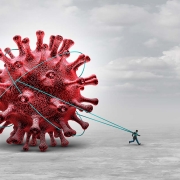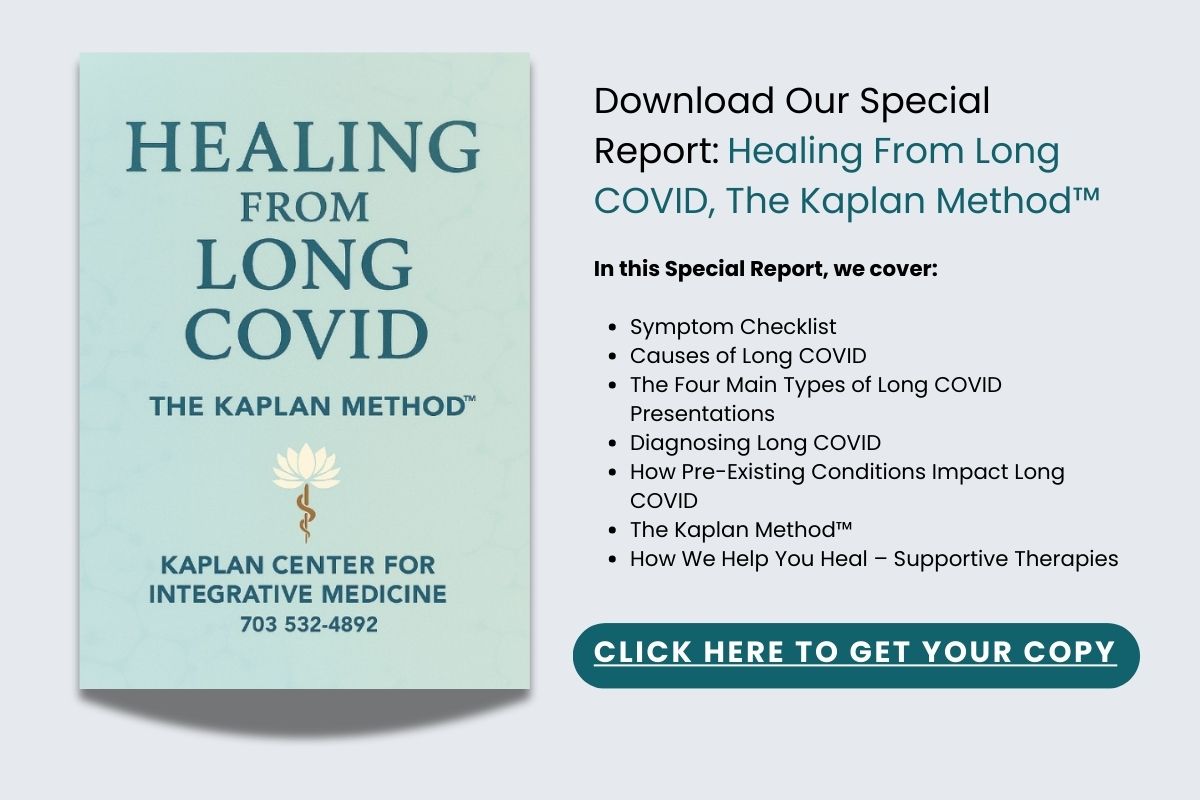Living in the Shadow of COVID-19: The Persistent Struggle with Long-COVID
If you or someone you know has overcome COVID-19, there may be an expectation that life will quickly return to normal. Yet, for millions globally, that recovery is marred by the onset of Long-COVID, a perplexing condition that shadows them long after the virus has subsided. This condition isn’t just a continuation of the initial illness; it’s a new, often more complex battle characterized by various symptoms that weave unpredictably through every aspect of daily life.
Long-COVID, also known as Post-Acute Sequelae of SARS-CoV-2 infection (PASC), emerges as a series of physical and psychological challenges that can persist for months or even years. Imagine waking up every day not knowing which version of yourself you’ll confront—will it be a day marred by crippling fatigue, or will brain fog cloud your thoughts and hamper your simplest tasks? Perhaps breathlessness will tighten its grip during a short walk from your bed to the kitchen, or maybe today is when your heart races with unsettling palpitations that no amount of calming can ease.
These symptoms of Long-COVID, not only disrupt personal health and well-being but also affect relationships, professional ambitions, and the very essence of what it means to feel normal. In this article, we delve into the lives of those grappling with Long-COVID, exploring their daily challenges and the broader implications of a condition as varied as unpredictable. Through their stories, we seek to foster understanding and empathy, offering a glimpse into the enduring impact of a global pandemic that continues to redefine health landscapes and personal narratives alike.
Understanding Long-COVID
Long-COVID, or Post-Acute Sequelae of SARS-CoV-2 infection (PASC), is a complex, multifaceted condition that continues to baffle the medical community. It occurs after the acute phase of a COVID-19 infection and can persist for months or even years, with symptoms that can severely impact a person’s quality of life. Unlike the initial infection, which is usually confined to respiratory symptoms, Long-COVID has a broad spectrum of signs and symptoms affecting multiple organ systems.
The Scope of Symptoms
The symptoms of Long-COVID are diverse and often debilitating. They include, but are not limited to:
- Fatigue: This is not just ordinary tiredness; it’s a profound, unrelenting exhaustion that doesn’t improve with rest and can be exacerbated by even minimal activity.
- Brain Fog: Many individuals report difficulties with concentration and memory, often described as feeling like their thoughts are “wading through molasses.
- Breathlessness: Even minor physical exertion can leave someone gasping for air, a condition that can persist long after the lungs have supposedly healed.
- Chest Pain and Heart Palpitations: These symptoms can be particularly alarming as they mimic those of heart attacks, often leading to repeated hospital visits.
- Pain and Muscle Aches: Persistent pain, including joint pain and muscle aches, can be a daily challenge for those with Long-COVID.
- Loss of Taste and Smell: For some, this common symptom of the acute phase continues, altering their ability to enjoy food and drinks.
- Gastrointestinal Issues: Symptoms can include diarrhea, constipation, and stomach cramps, affecting nutritional status and overall health.
- Psychological Implications: Anxiety and depression are frequent companions of Long-COVID, fueled by the chronic nature of the illness and the uncertainty surrounding it.
What We Know So Far
Research into Long-COVID is robust and diverse, addressing the varied manifestations of the condition across different patient populations. One leading theory suggests that the virus may cause a prolonged immune response, leading to widespread inflammation that affects multiple organ systems. Supporting this, Dr. Bruce Patterson’s research provides significant insights into the immunological aspects of Long-COVID. His studies have identified specific biomarkers that correlate with various Long-COVID symptoms, suggesting that certain immune cells may continue to drive inflammation well after the initial infection has resolved.
Another area of Dr. Patterson’s research focuses on the possibility that the virus may remain in some small reservoirs within the body, reactivating periodically and causing symptoms. This theory could explain the relapsing-remitting nature of Long-COVID, where symptoms flare up and subside, challenging the recovery process.
Epidemiologically, Long-COVID appears to affect around 10% to 30% of those who contract COVID-19, including those who had mild cases or were asymptomatic during the initial infection phase. The condition does not discriminate, affecting individuals young and old, healthy and those with pre-existing conditions. Dr. Patterson’s ongoing work aims to delineate further the risk factors and mechanisms underlying these disparities, providing a clearer picture of who is most at risk and why.
Dr. Patterson’s innovative approach involves using advanced diagnostic tools to better understand the “Long hauler” phenotype. His team uses sophisticated lab techniques to measure the levels of cytokines and other immune markers in patients diagnosed with Long-COVID. This research not only helps in understanding the pathophysiology of Long-COVID but also assists in developing targeted therapies that address the specific biological mechanisms at play.
This ongoing research is crucial as it continues to fill the gaps in our understanding of Long-COVID, paving the way for new treatments and interventions that are grounded in solid scientific evidence. The hope is that these efforts will lead to significant breakthroughs in the management and treatment of Long-COVID, offering relief and recovery to millions affected worldwide.
Diagnostic Challenges
Currently, no single test can diagnose Long-COVID, which complicates healthcare providers’ ability to understand and treat this condition. Diagnosis is primarily based on patient history and a process of exclusion, where other potential causes for the symptoms are ruled out.
As the scientific community’s understanding of Long-COVID evolves, it becomes clear that this is not merely a singular health issue but a spectrum of conditions with potentially profound implications for public health systems globally.
The Challenges of Working with Long-COVID
For many, the workplace becomes a battleground where daily victories hinge on health fluctuations and the understanding of colleagues and employers. Accommodations such as modified work hours, telecommuting options, and physical support can be crucial for maintaining employment and dignity.
Beyond the workplace, Long-COVID affects social interactions and personal relationships. Activities that were once routine can become exhausting or impossible, leading to social isolation and emotional strain. Support groups and online communities have become vital, providing spaces for sharing experiences and coping strategies.
Understanding Long-COVID is just the beginning. It’s crucial for everyone—employers, family members, healthcare providers—to learn how to support those affected. By raising awareness and advocating for better care and accommodations, we can improve the lives of those dealing with Long-COVID.
Medical and Supportive Care
Addressing Long-COVID requires a multifaceted approach due to its complex and varied symptoms. The Kaplan Center for Integrative Medicine has been at the forefront of treating Long-COVID by employing a personalized and integrative strategy that reflects the center’s deep understanding of chronic illness management. This approach is designed not only to alleviate the wide range of Long-COVID symptoms but also to enhance the overall well-being of each patient.
Comprehensive Treatment Modalities
At the Kaplan Center, treatment plans for Long-COVID are tailored to each patient’s individual needs. Recognizing that Long-COVID can affect virtually any system in the body, the center utilizes a variety of therapeutic modalities:
- Prescription Medications: These are used to address specific symptoms such as severe inflammation, pain, and neurological issues. The selection of medication is carefully adjusted based on the patient’s medical history and ongoing responses to treatment.
- Nutritional Supplements: Understanding that nutrition plays a crucial role in recovery and health, the Kaplan Center provides customized dietary advice and supplements. These are aimed at restoring nutrient balance, supporting immune function, and reducing inflammation, which are critical in managing Long-COVID.
- Therapeutic Plasma Exchange (TPE): TPE has shown promise in reducing key biomarkers such as inflammation, elevated blood lipids and antibodies that may be part of post-infectious syndromes like Long COVID.
- Acupuncture: This traditional Chinese medicine technique has proven effective in managing pain and stress-related symptoms commonly found in Long-COVID patients. It helps in enhancing circulatory health, reducing chronic pain, and improving sleep patterns.
- IV Therapy: For patients experiencing severe depletion of nutrients or those who need a rapid improvement in their symptoms, IV therapy offers direct delivery of essential vitamins and minerals to the body.
- Physical Therapy: Tailored exercise programs are developed to help patients regain their strength and stamina without exacerbating their symptoms, especially for those suffering from post-exertional malaise, a hallmark of Long-COVID.
- Psychotherapy and Mental Health Support: Recognizing the psychological impact of Long-COVID, the center offers mental health support and counseling to help patients cope with the anxiety, depression, and emotional distress that often accompany prolonged illness.
- Sleep Management Techniques: As disrupted sleep is a common complaint among Long-COVID sufferers, the center also focuses on strategies to improve sleep hygiene and quality, which are pivotal in the overall healing process.
Expertise in Chronic Illness Management
The Kaplan Center’s approach is deeply rooted in its decades-long expertise in managing chronic illnesses. The center’s team includes specialists across various fields who collaborate to address the unique aspects of Long-COVID. Cutting-edge diagnostic tests developed under the guidance of experts like Dr. Bruce Patterson help pinpoint specific biomarkers. This precision medicine approach ensures that treatments are not only targeted but also more effective in managing the condition.
Patient-Centered Care
Central to the Kaplan Center’s philosophy is a patient-centered approach, where treatments are adjusted based on continuous feedback and monitoring of the patient’s progress. This dynamic approach helps in accommodating the changing nature of Long-COVID symptoms, ensuring that each patient receives care that is adapted to their evolving needs.
By integrating these various modalities and expertise, the Kaplan Center strives to provide a comprehensive treatment framework that addresses the physical, mental, and emotional challenges posed by Long-COVID. The goal is not just symptom management but enabling patients to achieve and maintain their best possible health after experiencing COVID-19.
Are you or someone you know affected by Long-COVID? Sharing your story can inspire change and help others feel less alone. Join us in spreading awareness and pushing for better support by sharing this article and your experiences on social media.
Long-COVID Recovery Services
If you are experiencing symptoms beyond six weeks of being diagnosed with COVID-19, learn more about our Long-COVID Recovery Services to regain your strength, energy, and vitality. Click here for more information.






Leave a Reply
Want to join the discussion?Feel free to contribute!